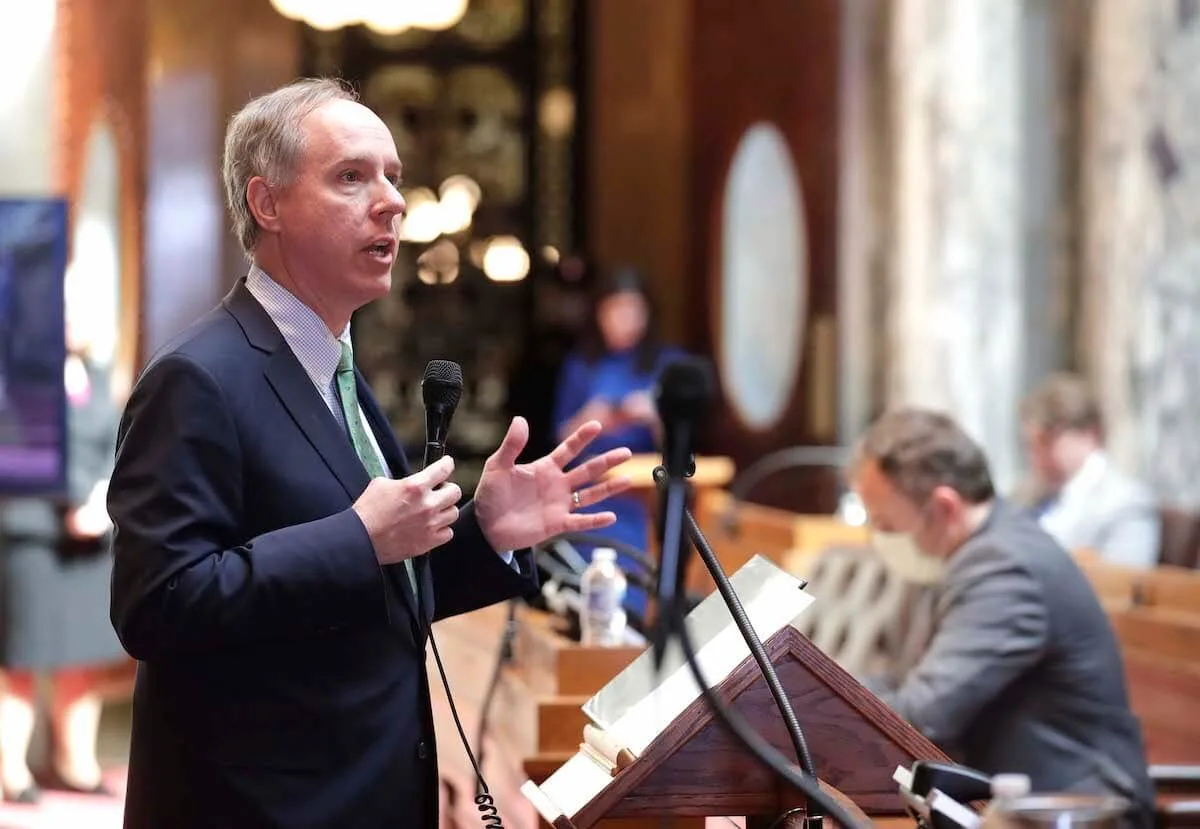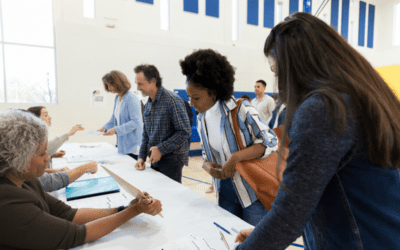
#image_title
“People all across Wisconsin safely go to work every day and members of the Assembly are capable of doing so as well.”
The top Republican Assembly leader confirmed Tuesday that lawmakers will not be provided with a virtual option to participate in the upcoming legislative session safely from home, even as the coronavirus pandemic continues to claim dozens of lives each day.
Instead, the 99 Assembly members will be required to attend sessions in-person in order to vote on bills of statewide significance, according to an email correspondence from Assembly Speaker Robin Vos’ office.
The emailed response did not address if masks or social distancing guidelines would be enforced by Assembly leaders. UpNorthNews reached out to the office of Senate Majority Leader Devin LeMahieu (R-Oostburg) but did not receive an immediate response.
“People all across Wisconsin safely go to work every day and members of the Assembly are capable of doing so as well,” said Vos in an emailed statement. “Congress met this week to pass legislation and in January we will meet safely, like other legislatures across the country have done during the pandemic.”
Whether a legislative body can meet safely is an issue made more relevant by the recent death of a Minnesota state senator. There have been at least four other deaths of state legislators and close to 80 coronavirus infections among members of Congress, according to statistics kept by the website Ballotpedia. And officials have tried to stifle news of COVID-19 outbreaks among Republicans from the Wisconsin Legislature to the White House.
Vos’ confirmation of the mandatory in-person Assembly sessions came the same day as the Wisconsin Department of Health Services reported 120 state residents had died due to the coronavirus, a single-day record for deaths. That figure brings the total number of lives claimed by COVID-19 in Wisconsin to 4,545 Wisconsin residents. The seven-day average for Wisconsinites testing positive is 2,660. The percentage of positive tests remains high, with the seven-day average sitting at 26.2%. A safe level is considered 5% or lower.
The last time the Legislature met in mid-April, members were given the option to vote on bills virtually. Few Democrats attended that session in-person and those who did wore masks. Conversely, Republicans did attend the session but not all wore masks.
The confirmation that virtual legislative sessions will not be an option comes three weeks before Gov. Tony Evers’ is scheduled to deliver the State of the State address Jan. 12. Evers announced in early December that he will be making the State of the State and his Feb. 7 budget address virtually due to the pandemic.
In a statement announcing his decision, Evers encouraged the Legislature to convene virtually to receive both addresses in an effort to remain socially distant. That now will not be the case, at least in the Assembly.
“I have spent the better part of the last year encouraging Wisconsinites to stay home as often as possible, practice social distancing, and limit interactions and gatherings with people outside of their immediate households,” Evers said in the statement.
Assembly Minority Leader Gordon Hintz (D-Oshkosh) did not respond to requests for comment. Other Democratic Assembly members did express concerns with the lack of a virtual option.
Rep. Jimmy Anderson (D-Fitchburg), who fought for months after his election to receive accommodations for his disability—including the ability to call into committee meetings—said he heard he would be allowed to continue attending meetings virtually but is expected to attend four votes in person this session. Even so, he’s concerned about the requirement that he be physically present for four votes.
“As someone with significant lung issues, a respiratory illness like COVID-19 could easily kill me. I’m not trying to be over the top but that’s the reality,” said Anderson, who is paralyzed from the shoulders down after an injury incurred in a car accident on the way to celebrate his 24th birthday. “The fact that we would be gambling with my life when we’ve proven we can do this virtually and safely.”
Anderson said that so far the rules for the upcoming legislative session have not been distributed to members, so nothing is set in stone, even the accommodations for his disability.

In October, the Milwaukee Journal Sentinel first reported on an outbreak among Republican lawmakers and aides after a series of in-person events, including a retirement party held in September. At least six people were infected, including Vos’ chief of staff.
Following that outbreak involving Capitol staffers, Evers said any state worker with suspected, confirmed or direct exposure to COVID-19 should notify their supervisor, who would then notify human resources, which would then notify others who were in close contact with the reporting employee.
Representative-elect Lee Snodgrass (D-Appleton), who was elected in November to her first Assembly term, expressed her concerns over the apparent lack of compliance with the Centers for Disease Control and Prevention guidelines in a series of posts on Twitter.
“The WI State Assembly is a hostile (and now dangerous) work environment. Legislators are having to choose between their health, health of their staff, families and communities or being in person for floor sessions,” Snodgrass tweeted. “We can [and have been] doing our jobs remotely for months.”
In her tweets she stated lawmakers have received no guidance or requirements for masking, social distancing or reporting when someone is exposed to or tests positive for COVID-19.
Several legislative committees and task forces have begun meeting, with tension developing, in at least one instance, between the Republican members who attended in-person and the Democratic members who attended virtually.
At the Joint Committee on Campaigns and Elections public hearing held on Dec. 12, several Democratic committee members logged out of the hearing, stating Chair Rep. Ron Tusler (R-Harrison) had been ignoring their requests to give statements and question witnesses.
Rep. Shae Sortwell (R-Two Rivers), a committee member, quipped, “Well maybe [Democrats] should come to work.” Sortwell’s remark followed a statement made during a Dec. 2 Assembly Ways and Means Committee meeting when Rep. John Macco (R-Green Bay), who is committee chair, announced that members must attend meetings in-person and that anyone joining virtually would be marked absent.
In April, then-Senate President Roger Roth (R-Appleton) similarly refused to recognize two Democratic colleagues online who wished to speak.
Reporter Amy Reid covered the hearing for Madison’s Channel 3000. She shared on Twitter that the press was asked to fit in one corner of the hearing room next to Rep. Dave Murphy (R-Greenville), who she photographed unmasked. She later tweeted that Murphy put his mask on at the request of a colleague but several other committee members remained unmasked during the hearing.
“I’m really disappointed,” said Anderson. “It’s dangerous.”

This billionaire’s PAC is spreading a big lie about Tammy Baldwin, Medicare, and taxpayer savings
Restoration PAC, funded by Uline’s Richard Uihlein, twists the significance of forcing Big Pharma to negotiate for lower bulk pricing on Medicare...

New Biden rules deliver automatic cash refunds for canceled flights, ban surprise fees
In the aftermath of a canceled or delayed flight, there’s nothing less appealing than spending hours on the phone waiting to speak with an airline...

Opinion: It’s time for Congress to fight for small businesses instead of big corporations
May is National Small Business Month. Our elected leaders need to show leadership all year long. For the past 27 years I’ve been fortunate to pursue...

Biden makes 4 million more workers eligible for overtime pay
The Biden administration announced a new rule Tuesday to expand overtime pay for around 4 million lower-paid salaried employees nationwide. The...




